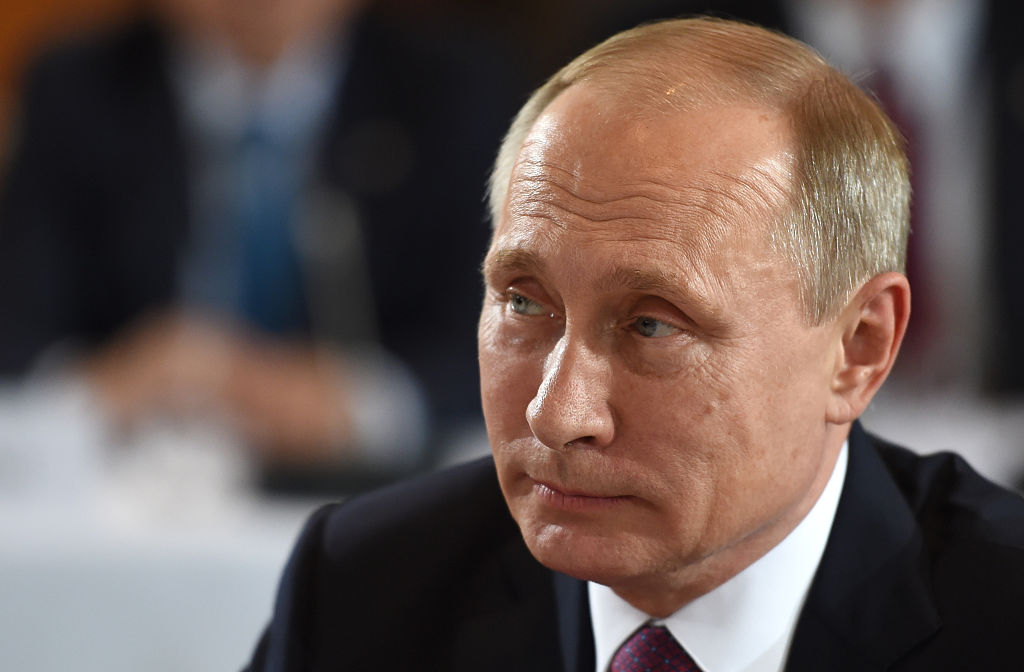Moscow reportedly has 'buyer's remorse' over aiding Donald Trump


A free daily email with the biggest news stories of the day – and the best features from TheWeek.com
You are now subscribed
Your newsletter sign-up was successful
The Russian government started heavily interfering in the U.S. election not so much to help Donald Trump but to hurt Hillary Clinton, whom Russian President Vladimir Putin has never forgiven for calling 2011 Russian elections less than free and fair, Kurt Eichenwald reports at Newsweek, citing multiple Western and European intelligence sources. However, Putin is reportedly pleased — and European governments perplexed and terrified — that Trump continues to disregard the information he gets from U.S. intelligence on Moscow's hacking operation and defends Putin.
Here's how Moscow's disinformation and propaganda campaign works, according to Eichenwald: "Hackers pilfer information from a variety of organizations both inside and outside Western governments; that is distributed to individuals who feed it into what a source told a European intelligence expert was a 'pipeline.'" This often-multi-step pipeline is eventually routed to the media, including through WikiLeaks, though, Eichenwald notes, "there is a strong possibility that WikiLeaks does not know with certainty the ultimate source of these records." But for a bit in August, Russia stopped feeding the WikiLeaks pipeline, Eichenwald explains:
Trump's attacks on the parents of a slain Muslim American soldier following the father's speech at the Democratic convention created dismay in the Kremlin. Top Russian officials came to believe Trump would be forced to withdraw from the race because of his psychological state and apparent unsuitability for the presidency, according to information obtained by the Western intelligence source. In particular, Kremlin officials feared they could not predict what impact it might have on Russia should Trump step aside ... By October, "buyer's remorse" had set in at the Kremlin, according to a report obtained by Western counterintelligence. Russia came to see Trump as too unpredictable and feared that, should he win, the Kremlin would not be able to rely on him or even anticipate his actions. [Newsweek]
The massive cyberattack and misinformation campaign caused a deep split inside the Kremlin, but Putin is reportedly happy with the operation, whoever wins. "Should Clinton win, he has told associates, her administration would be bogged down trying to heal divisions within the United States brought about by releases and misrepresentations of hacked information, and would have little time or political capital to confront Russia's efforts in Syria, Ukraine, and other locales," Eichenwald writes, citing a Western intelligence source. You can read more, including the dismay European spooks express at having to investigate Trump's various ties to Moscow, at Newsweek.
The Week
Escape your echo chamber. Get the facts behind the news, plus analysis from multiple perspectives.

Sign up for The Week's Free Newsletters
From our morning news briefing to a weekly Good News Newsletter, get the best of The Week delivered directly to your inbox.
From our morning news briefing to a weekly Good News Newsletter, get the best of The Week delivered directly to your inbox.
A free daily email with the biggest news stories of the day – and the best features from TheWeek.com
Peter has worked as a news and culture writer and editor at The Week since the site's launch in 2008. He covers politics, world affairs, religion and cultural currents. His journalism career began as a copy editor at a financial newswire and has included editorial positions at The New York Times Magazine, Facts on File, and Oregon State University.
